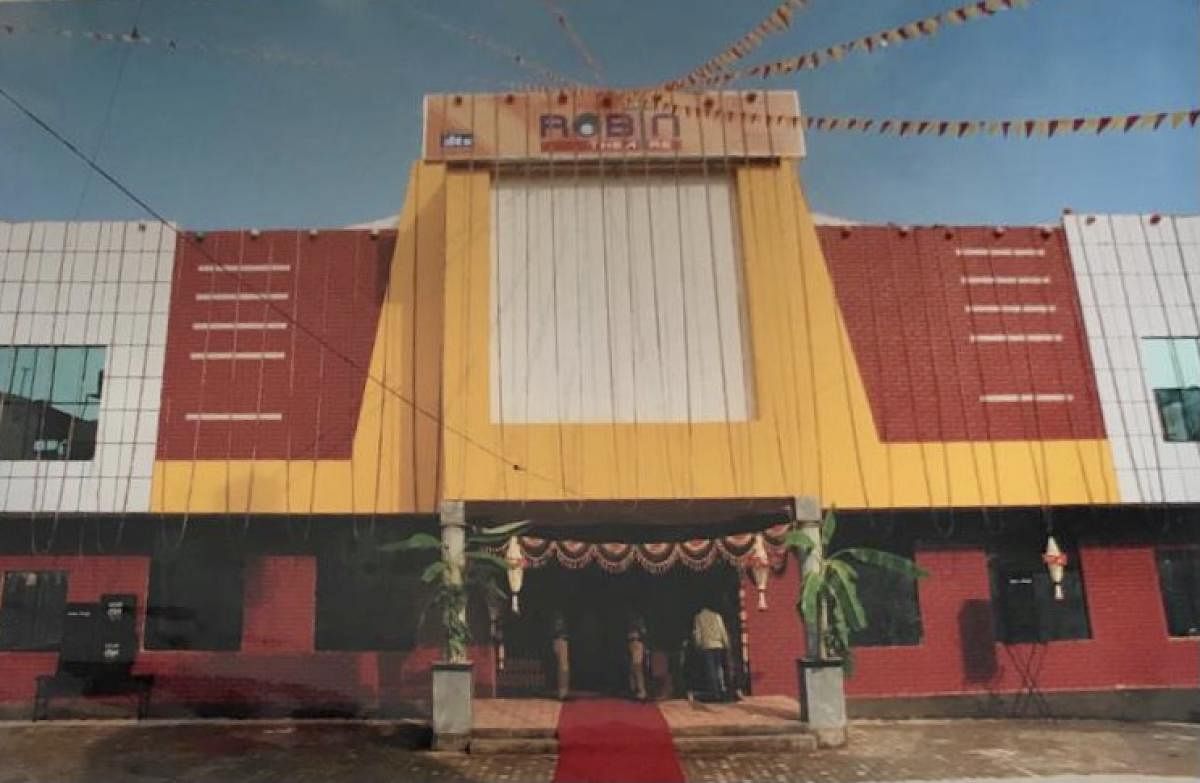
The Karnataka government on Sunday further relaxed the Covid-19-related lockdown norms and allowed cinema halls to function at 50 per cent capacity.
However, the industry is not yet ready to come back into business until cinema halls are allowed to function at 100 per cent capacity.
The Karnataka Film Chamber of Commerce (KFCC) will soon be meeting Chief Minister B S Yediyurappa to request 100 per cent occupancy at cinema halls, says D R Jairaj, president, KFCC.
“A huge number of movies are ready to be released but the big producers in the industry have made it clear that they won’t be releasing them in theatres unless the government further relaxes lockdown restrictions and allows 100 per cent occupancy,” he tells Metrolife.
He also urged the CM to allow shooting in government-owned studios. “The sets are getting ruined. It will be an extra financial burden to get the sets rebuilt. We are hoping that they allow the industry to start shooting soon. This is acting as a major roadblock,” he adds.
Close to 100 projects have been put on hold in the Kannada industry, says B Suresh, film director, producer and screenwriter. “The film industry has received a massive blow due to the second wave. Since a lot of projects were put on hold due to the lockdown, every production with a big set had to keep their set waiting for months, and that burden is higher than doing a film itself,” he says.
Helpers, workers and junior artists are affected the most. “Most helpers are migrant workers and they work on daily wages. They all had to go back once the shooting was put on hold as they could not sustain in the city,” he adds.
Dayal Padmanabhan, director, says the industry had barely recovered from the first wave of Covid-19 before the second wave hit.
“I had just started production for a movie when the first wave affected Bengaluru, so I had to put it on hold completely. Then after that when we were able to finish the movie and it was ready to release, the second eave hit and movie is stuck again. I just hope this cycle does not get repeated with the third wave,” he says. He plans to begin shooting for his new Kannada projects in September, once there is no longer a fear of a third wave of Covid-19 hitting the city.
The lockdown has not at all affected pre-production, says B S Lingadevaru, director. “The pandemic has mainly impacted on-field work, bringing it to a halt. But we are planning to resume shooting from September,” he adds.
He says it is best to not expect any high-budget movies at the moment.
Cinema theatres in a stitch
About 500 films are ready for release but have not hit the theatres due to the effects of Covid-19, says Suresh. Several single-screen theatres and multiplexes have remained shut for more than 12 months in the city.
Currently, even though the government has allowed cinema theatres to function at 50 per cent capacity, not many are keen on reopening the space.
Venkatesh Reddy, owner, Mukunda Theatre, Banaswadi, says he will not be opening his cinema hall anytime soon. “I should have enough films to run the show for at least two to three weeks,” he says.
Currently, we do not have any big-budget films, he tells Metrolife.
“We might have a few good Telugu, Kannada and English movies to air after August 5, I will open the theatre then,” he adds.
Film exhibitors in the city are also heavily dependent on the movie industries in neighbouring states.
“The situation seems glum for us until Tamil Nadu and Kerala open up and start releasing movies. There is a huge demand for those movies too,” says Thomas D’souza, owner, Robin Theatre, Kengeri and vice president of South India Film Federation.
The pandemic has made it impossible for single-screen theatres to survive in Bengaluru, he says.
“I have been in the industry for over 40 years. Have never come across such a horrible situation. It is going to be very hard to recover from this. We have loans to pay and even if our theatres have been shut for several months, we’ve still had to pay several bills and salaries every month,” he adds.
Waiving of property tax is the only concession theatre owners have received so far. The KFCC has appealed to the government to provide other waivers such as concession on water and electricity bills for movie theatres.
“As the theatres were all shut down during lockdown, many did not pay their electricity bill and as a result, their electricity connection was completely cut. So now, on top of the losses incurred, the theatres had to pay extra and make a hefty deposit to get a new connection,” Jairaj tells Metrolife.
Bengaluru makes up 70 per cent of the state’s revenue when it comes to cinema theatres, says Venkatesh. “The losses incurred are in crores if we just consider the last four months,” he says.
He believes the future is bleak for cinema theatres in the city with many production houses shifting to OTT platforms post-pandemic. “People who cannot afford to release their films in theatre have now got an opportunity to try OTT platforms,” he adds.
However, this trend is dying down says Jairaj. “Last year many movies were released on OTT platforms, as the online platforms were very encouraging. But that is not the case this year. These platforms have now become very picky and have changed their terms. As a result, many regional movies are getting rejected. The future if the industry is not online,” he adds.